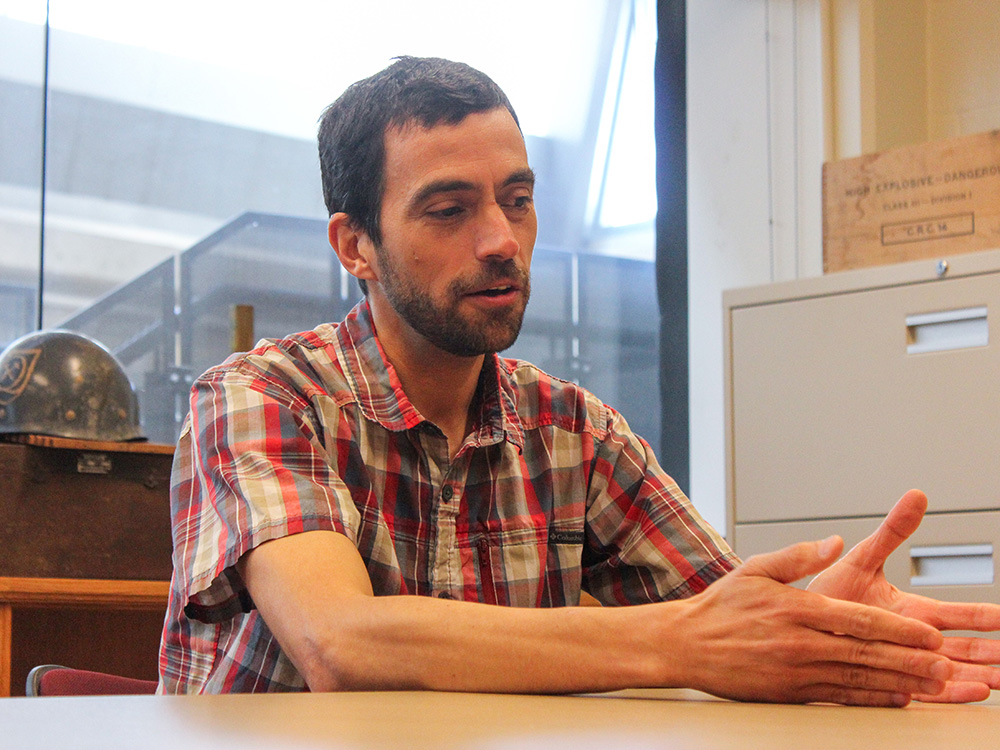Julián Ortiz wants you to know that Mining is more than just extracting materials from the earth.
“It is a very complex industry,” he says. “You need geosciences as an input, materials science is involved, chemistry and chemical engineering. Building a mine requires all the engineering disciplines. You need mechanical, electrical, piping experts, there are physical processes involved. Geologists and geophysicists help during exploration, we also need people working in sensing and measuring properties of materials throughout the processes downstream. It’s very broad.”
As Department Head and Associate Professor in the Robert M. Buchan Department of Mining, Ortiz sees a future for the industry that encompasses responsible extraction that is respectful of the earth and its resources.
“For example, in the copper industry,” he says, “in order to get one ton of copper you need to remove 100 tons of material and that’s being optimistic. When you remove all the waste to expose the ore, the rock can react with the oxygen in the atmosphere and generate acid drainage. So there are lots of issues with all the waste that’s created. And that’s part of what we need to do differently. We need to be smarter in how we recover what we want, and how we reuse everything that we’re handling. We need to find ways to use the waste that is removed.”
His research is in resource assessments and geo-statistics. “I try to guess what’s underground from very limited sampling data. That requires combining statistics and modeling with understanding of the geology that’s controlling where the ore is underground. It’s basically building models. And it has a lot of spatial statistics, to understand how things are correlated in space.”
Ortiz teaches geostatistics and surface mining courses, and conducts research related to geostatistics, stochastic modelling of ore deposits, sampling and QA QC, and geometallurgical modelling.

He moved to Kingston and joined the Queen’s faculty in 2016 from his native Chile, the largest copper producer in the world with mines much larger than those in Canada. As an undergraduate, he entered a program similar to Queen’s, which featured a two-year common curriculum with the opportunity to choose a discipline after. His selection of the Mining program is indicative of the exploratory nature of those first years and their influence.
“Chile is a country where mining is well established. It has very large ore deposits,” he says. “There are a number of people working in mining-related activities, but it’s not something well known. So I was like any other high school student, in that I had no clue about mining other than that there are some mines in some parts of the country. I entered an engineering program that is a six-year program. It has two years that are common for all engineering and some science degrees as well, including geology and geophysics.”
“At the end of those two years, just like here with our Discipline Night at Queen’s, we needed to pick a discipline. I was leaning toward Civil Engineering because I had worked some as a helper, helping civil engineers in summer jobs. I liked the possibility of field work. But the whole problem of mining as it was presented to me, it fascinated me. You have very few samples and you need to understand how to get the reserves out of the earth and process them to recover what you’re interested in. It has all sorts of different components, lots of geosciences, modeling, and engineering, real design. There is also the processing component, and it has all these implications with the surroundings, communities involved and the environment and social issues. There is a lot of economics involved as well, because the investments are extremely large. I found mining was a big, interesting problem.”
“Once I looked into it, I found that mining is so broad. You can always find something you like. That’s something I try to tell students. If you like computer science, for example, we need computer scientists, because there are great challenges and I think one of the issues with mining is that it has a bad reputation. But we need smart people to help us solve those problems. We want to make it better. We want to make it sustainable, though by definition it is a limited resource. You can’t extract forever. So once we extract something, we better make the best use of it possible.”